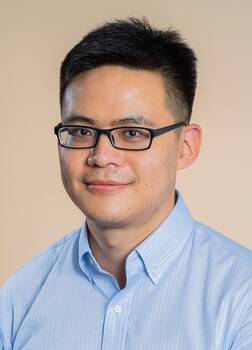Junli Zhao
Lecturer, Bayes Business School, City University of London

What is your current position and academic background?
I defended my PhD dissertation in August 2021. Soon after, in September 2021, I joined Bayes Business School, City University of London as a lecturer (assistant professor) in finance. Without the HEC PhD, it would have been harder to get exposure to high-level international research and to eventually get a position in such a research-intensive business school.
Before joining the HEC PhD program, I studied physics in China and financial engineering in Switzerland, so my background was mostly math/science, and I had no formal training in economics before I started in Jouy-en-Josas. Five years later, the PhD program has turned me into a financial economist. I have really enjoyed the process, which was full of fun and intellectual excitement.
I was attracted by the friendly and productive atmosphere among faculties and PhD students. The faculties here are always willing to devote their time and effort to help PhD students. This is probably one of the reasons why the program has been very successful.
Why did you decide to join the HEC Paris PhD Program?
Maybe I should start with how I moved from science to finance. When I was still a bachelor, I had been interested in economics and finance. A book by Robert Shiller, Finance and the Good Society, finally nudged me to move into finance. Then I went to study a master’s degree in financial engineering. With no background in finance and economics, a financial engineering degree seemed to be a perfect starting point for me. When I just started, I was not sure whether I should go to industry or pursue a PhD after my master’s degree. In the summer of the first year in my master’s study, I did a small research project to get a sense of what doing research looks like. Soon, I was fascinated by that experience, especially the rewarded feeling after coming up with a method to solve the problem at hand. After that summer, I started to think seriously about pursuing a career in academia and decided to do a PhD.
Why HEC Paris? I prefer to do research that emphasizes on economic and financial intuition/application instead of putting too much weight on technical tools. This is exactly the type of research that faculties in HEC Paris are doing. More importantly, I was attracted by the friendly and productive atmosphere among faculties and PhD students. The faculties here are always willing to devote their time and effort to help PhD students. This is probably one of the reasons why the program has been very successful.
Can you talk about your research?
I have been interested in how asymmetric information and information technologies affect the behaviors of intermediaries such as asset managers, brokers, and financial advisors. I ask whether and how sell-side analyst research aggravates the agency conflict between asset managers and their clients, and whether a regulation like MiFID II helps to alleviate this problem. I’m also interested in whether the abundance of data makes financial analysts less valuable for their employers. In my dissertation, I use both theoretical and empirical methods to answer these questions.
What advice would you give to someone who would like to pursue a PhD?
Think carefully why you would like to do a PhD and what you are going to do with the degree. Perhaps reading a book that talks about someone else’s PhD life helps. There can be some bumps through the journey, so you also need to be strong. Finally, talk to your advisors/faculties often.
Thesis
Essays on intermediation in financial markets.
Abstract : The thesis contains three essays. In the first essay, I investigate whether financial experts benefit from more machine-readable data in information production in asset management. Exploiting an exogenous regulatory shock that makes corporate filings more machine-readable, I find that institutions with more financial experts have larger performance improvement than institutions with fewer financial experts, suggesting financial experts benefiting from more machine-readable data. This result helps evaluate the likelihood of algorithms replacing high-skilled financial practitioners. In the second essay, I study the rationale and implications of the recent MiFID II regulation in Europe that made delegated asset managers’ spending on sell-side analyst research more transparent to their clients. We show that transparency decreases the use of sell-side research but stimulates more buy-side research activities, which is consistent with empirical findings. Our model has additional predictions on managers’ performance, liquidity, and social welfare. In the third essay, I study brokers in private placement markets, who intermediate about 20% of capital raised by non-financial firms in this market. I find that projects intermediated by brokers with better reputations are more likely to be fully funded. Contrary to existing theories on underwriters, projects sold through brokers are less likely to be fully funded on average and most issuers prefer direct selling. A model that features both search frictions and asymmetric information suggests that these non-regularities may be due to the fact that the certification role of brokers is limited by competition between intermediated selling and direct selling. The model also explains some non-intuitive patterns of commission fees in the data. These results contribute to a better understanding of private placement markets and intermediaries in other financial markets.
Keywords: Information Technology; Skilled Labor; Information Acquisition
Thesis advisor: Jean Edouard Colliard, HEC Professor of Finance
Learn more about Junli Zhao's research here.